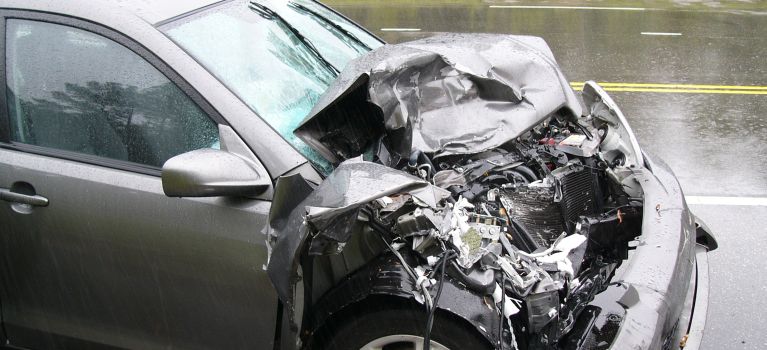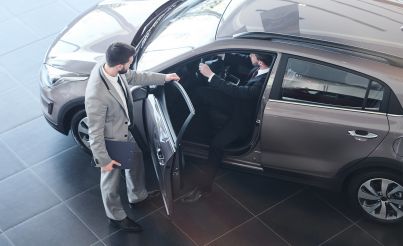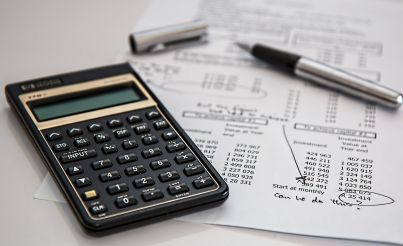- First steps at the accident scene - how to keep yourself and others safe
- Reporting damage to the leased car - lessor and car insurance
- What is the insurance situation for a leased car?
- GAP insurance - how to protect yourself against the costs of total loss
- Who is at fault for the accident and pays for the repair of the leased vehicle?
- Carvolution car subscription - the leasing alternative with a low deductible
A major accident is always a significant event for everyone involved. If you are involved in an accident, the safety and health of everyone involved is obviously your first priority. After hopefully no one has been injured, the next step is to deal with the vehicle damage, which has some particularities in the case of a leased vehicle.
In this blog article, we explain how the process works and what you need to be aware of. We also explain when an accident is considered a total loss and how this affects the outstanding leasing instalments.
First steps at the accident scene - how to keep yourself and others safe
The most important thing to do after an accident is to stay calm. Once you have had a chance to breathe deeply and get your bearings, follow these steps at the scene of the accident:
Secure the accident scene
Give first aid
Inform the police about the accident
Document the accident and any damage to the vehicle
If there is only minor damage, such as small scratches on the paintwork or minor dents in the bodywork, it is not absolutely necessary to report the accident to the police. In this case, however, it is essential to exchange personal details and insurance information.
If the accident is more serious, the fault cannot be clearly established or there are other uncertainties, the damage should definitely be reported to the police. If in doubt, it is better to call them once too often than once too little. Better documentation of the accident will also make it easier to settle the claim with the insurance company.
Reporting damage to the leased car - lessor and car insurance
In addition to securing the scene and reporting the accident to the police, the lessor must also be informed of the damage. The lessor is the legal owner of the leased vehicle and further steps, such as repairs, must be agreed with him/her. Your car insurance company must also be informed of the damage. In your own interest, we recommend that you also inform the other party's insurance company.
What is the insurance situation for a leased car?
As with any other vehicle, a leased car must be covered by third party insurance to cover damage caused by the driver. As a leased car remains the property of the lessor, it is usually compulsory to take out fully comprehensive insurance.
However, even a fully comprehensive policy has its limits. In the event of a total loss, when it is no longer worthwhile to repair the car, the insurance only covers the replacement value of the leased car. This is based on the current value of an equivalent car with similar mileage and equipment at the time of the accident.
As a new car is worth considerably less than its new price shortly after purchase, the amount covered by the insurance may be less than the value based on the balance due.
GAP insurance - how to protect yourself against the costs of total loss
GAP insurance can provide a remedy for precisely this situation. The insurance is a supplementary insurance to fully comprehensive motor insurance, with which you can save the insurance premium of the optional additional current value cover of the comprehensive insurance, as the book value of the vehicle is also covered.
Depending on the contract, this insurance also includes additional benefits. These include the unused portion of the down payment made, the costs of a replacement vehicle, your deductible in the event of a total loss or recovery and travel costs. The insurance cover is independent of your normal car insurance. So if you ever want to change it, the GAP insurance remains in place.
Who is at fault for the accident and pays for the repair of the leased vehicle?
As a lessee, as with any accident, a key question is who is to blame for the accident. There are two cases to consider:
Fault of a third party: If you are not responsible for the accident, the motor vehicle liability insurance of the person responsible for the accident takes over. As the lessee, you may initially have to pay the costs. You can then later claim these from the other party's insurance company.
Contributory negligence / self-inflicted accident: If you are at least partly responsible for the accident, you will be (proportionately) liable for the damage to the vehicle, including repair costs and depreciation of the car. However, as you must always take out fully comprehensive insurance when leasing a car in Switzerland, you only pay the chosen excess per claim and, possibly, the abovementioned gap.
It is important to note that you may not carry out any repairs or use the vehicle without the consent of the lessor. You are (usually) required to use authorised garages, as it is in the lessor's interest that repairs are carried out as well and professionally as possible.
If the damage is too extensive to be repaired economically, the vehicle must be liquidated. This process is usually handled by the lessor.
Carvolution car subscription - the leasing alternative with a low deductible
If you want the best possible cover in the event of damage, a car subscription can be an interesting alternative to leasing. With Carvolution, the All-in-One package covers not only the car but also insurance, service and maintenance, cantonal redemption, taxes, tyre changes and storage at a monthly fixed price.
When it comes to insurance cover, you are well protected with Carvolution. Both third-party liability and fully comprehensive insurance are already included. While you don't pay a deductible for third-party liability and partially comprehensive damage, you can choose between a deductible of CHF 250-1000 for fully comprehensive damage. In addition, you can choose optional parking damage insurance, gross negligence protection and legal protection insurance to ensure you are always on the safe side.
Does the All-in-One concept of the car subscription sounds like a flexible and affordable solution to you? Then take a look at our model selection or receive a non-binding consultation from our team.
Sale
Benefit from attractive discounts on selected vehicles. Everything is included in the subscription, and a buyout is possible at the end!










